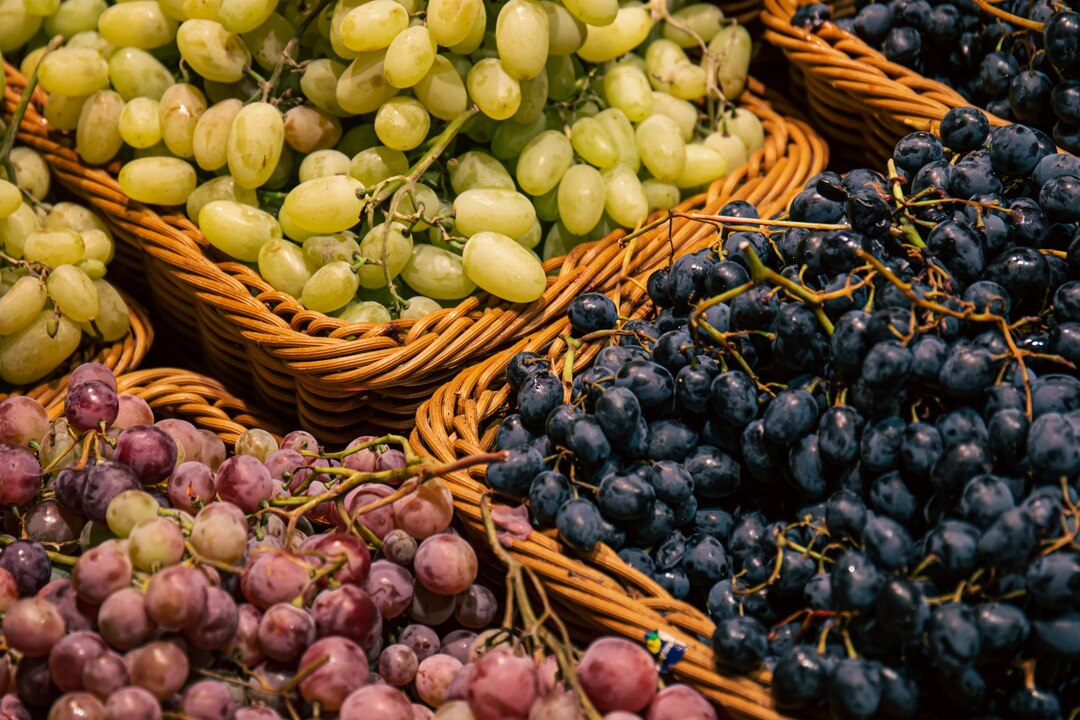Namibia, a country known for its stunning landscapes, wildlife, and diverse ecosystems, is increasingly gaining attention for its growing agricultural sector. While much focus has traditionally been on staple crops like maize and wheat, two crops have quietly been making a mark in Namibia’s agricultural landscape—dates and grapes. These crops, often overlooked in the context of Namibia’s arid climate, are proving to be resilient, sustainable, and economically valuable for the country. In this article, we will explore how dates and grapes have become Namibia’s unsung agricultural heroes, driving innovation, creating jobs, and contributing to food security.
Why Dates and Grapes Thrive in Namibia
- Climate Resilience
Namibia is characterized by a semi-arid climate, with frequent droughts and high temperatures. These extreme conditions make traditional farming challenging. However, both dates and grapes are exceptionally well-suited to Namibia’s environment.- Dates: Dates thrive in hot, dry conditions with minimal water requirements, making them an ideal crop for Namibia’s desert and semi-desert regions, especially in areas like the Namib Desert and the southern part of the country.
- Grapes: Grapevines are drought-tolerant and can adapt to Namibia’s arid conditions. Regions such as the vineyards of the Eastern Highlands, especially around the areas of Keetmanshoop, have proven to be highly successful in grape cultivation.
- Sustainable Farming Practices
Both dates and grapes require minimal water, which aligns with Namibia’s need for water-efficient agricultural practices. The use of drip irrigation systems ensures that water is used sparingly while still supporting healthy crop growth.
The Economic Impact of Dates and Grapes in Namibia
- Revenue Generation
Both dates and grapes contribute significantly to Namibia’s agricultural exports. Grapes, particularly table grapes, are in high demand in international markets, especially Europe. Dates, once a niche product, have gained popularity due to their high nutritional value, and are now being exported to markets in the Middle East, Europe, and even the United States. The production of dates and grapes is opening new markets for Namibia, positioning the country as a key exporter of these unique crops. This growth in agricultural exports is vital for Namibia’s economy, as it diversifies income streams and reduces reliance on traditional exports like minerals and livestock. - Job Creation
The cultivation, harvesting, and processing of dates and grapes have created numerous job opportunities, particularly in rural areas where unemployment is high. From farm workers to packaging and export professionals, many Namibians are benefiting from the emerging date and grape industries. - Boosting the Agricultural Sector
Dates and grapes represent a shift toward high-value crops in Namibia’s agricultural sector. Their success offers a blueprint for introducing other drought-resistant crops into Namibia’s agricultural landscape, further diversifying the country’s farming sector.
The Role of Dates in Namibia’s Agriculture
Dates are one of the oldest cultivated crops, known for their sweet, rich flavor and high nutritional value. In Namibia, date palms are being successfully grown in the country’s southern regions, where they are helping to turn arid land into productive agricultural space.
- Health Benefits of Dates
Dates are nutrient-dense and provide an excellent source of fiber, vitamins, and minerals, particularly potassium, magnesium, and iron. This makes them a valuable food source for Namibians and an export commodity with health-conscious consumers worldwide. - Traditional and Modern Uses
Dates are used in Namibia for a variety of purposes. Locally, they are consumed as a snack, incorporated into traditional dishes, or processed into syrups, jams, and dried fruits. Globally, they are a popular ingredient in healthy snacks, energy bars, and as a natural sweetener. The growing demand for organic, healthy foods is boosting the international popularity of Namibian dates.
The Role of Grapes in Namibia’s Agriculture
Namibia’s grape industry has been growing steadily over the past two decades. Grapes, both for fresh consumption and wine production, have found a welcoming home in Namibia’s arid environment. While wine-making has not traditionally been a major industry in Namibia, the country’s grapes are finding their way into international markets, both as table grapes and through the emerging wine industry.
- Wine Industry Potential
The growing popularity of Namibian grapes is also contributing to the development of a nascent wine industry. Grapes grown in Namibia’s dry, warm climate produce wines with unique flavors, which are gaining recognition. Wine tourism is also starting to develop, with vineyards offering tours, tastings, and accommodations. - Nutritional Value of Grapes
Grapes are rich in antioxidants, vitamins, and minerals. They are a popular snack worldwide due to their high water content and health benefits, including promoting heart health and improving circulation. Grapes are also known for their versatility, being used in a range of products from fresh fruit to dried raisins, juices, and wines.
Sustainable Farming Techniques for Dates and Grapes
Both dates and grapes are drought-resistant crops, but sustainable farming techniques are key to maximizing their yield while minimizing environmental impact. Namibia has adopted innovative agricultural practices to ensure the success of these crops:
- Drip Irrigation Systems
The use of drip irrigation has revolutionized the cultivation of dates and grapes in Namibia. This water-efficient method ensures that water is directed precisely to the plant’s roots, minimizing water waste and improving crop productivity. - Soil Conservation and Fertility
By incorporating soil conservation techniques such as mulching and crop rotation, farmers can maintain soil health and reduce erosion in Namibia’s fragile ecosystems. These techniques also improve water retention in the soil, benefiting both dates and grapes. - Climate-Smart Agriculture
Farmers are also employing climate-smart agricultural practices, such as using drought-tolerant varieties and adjusting planting schedules to avoid periods of extreme heat or water scarcity. These strategies ensure that both crops continue to thrive, even as Namibia faces the impacts of climate change.
Challenges Facing the Date and Grape Industry
- Water Scarcity
While both dates and grapes are drought-tolerant, Namibia’s overall water scarcity remains a challenge. Farmers must continually optimize their water management strategies to ensure the sustainability of their crops. - Market Access
Although there is growing demand for Namibian dates and grapes, challenges remain in accessing international markets, including meeting regulatory standards and dealing with logistics costs. - Climate Change
While dates and grapes are resilient, extreme weather events such as prolonged droughts or erratic rainfall can still threaten crop yields. Continued investment in research and development is necessary to adapt to these changing conditions.
The Future of Dates and Grapes in Namibia’s Agriculture
Despite the challenges, the future of dates and grapes in Namibia looks promising. The growing global demand for sustainable and healthy food products presents a unique opportunity for Namibia to establish itself as a leading supplier of dates and grapes.
With continued investments in infrastructure, research, and market access, Namibia’s agricultural sector is poised for further growth. As technology improves and farming practices evolve, the country can maximize the potential of these unsung agricultural heroes, benefiting both local communities and international consumers.
Dates and grapes are the unsung heroes of Namibia’s agricultural revolution. These crops, perfectly suited to Namibia’s harsh climate, are playing a vital role in the country’s economic growth, environmental sustainability, and food security. By embracing sustainable farming practices and focusing on high-value exports, Namibia has carved out a unique niche in the global agricultural market.
As the world continues to seek out healthy, sustainable, and drought-resistant crops, Namibia’s dates and grapes will continue to shine as examples of how innovation and resilience can thrive in even the most challenging conditions.













